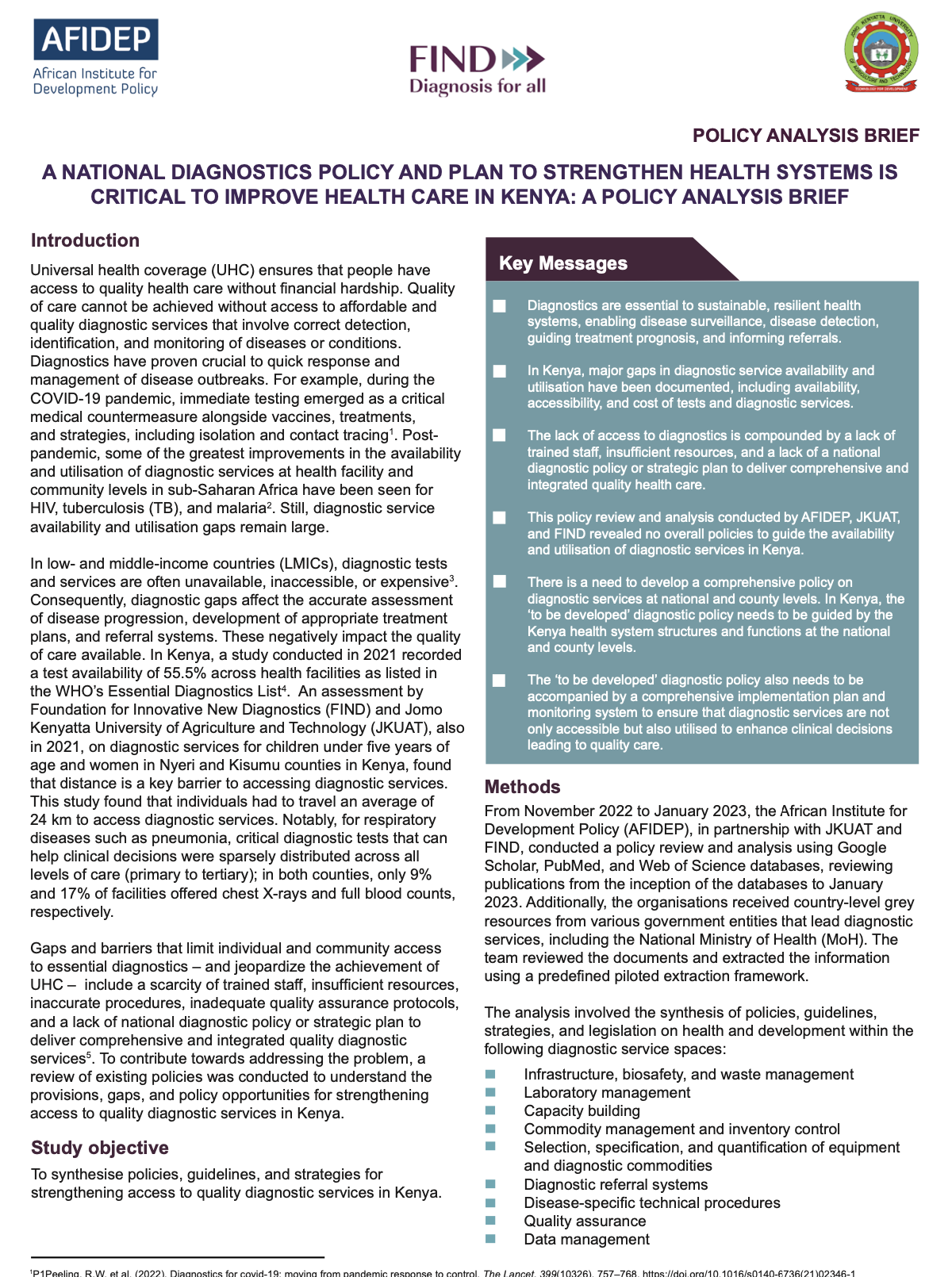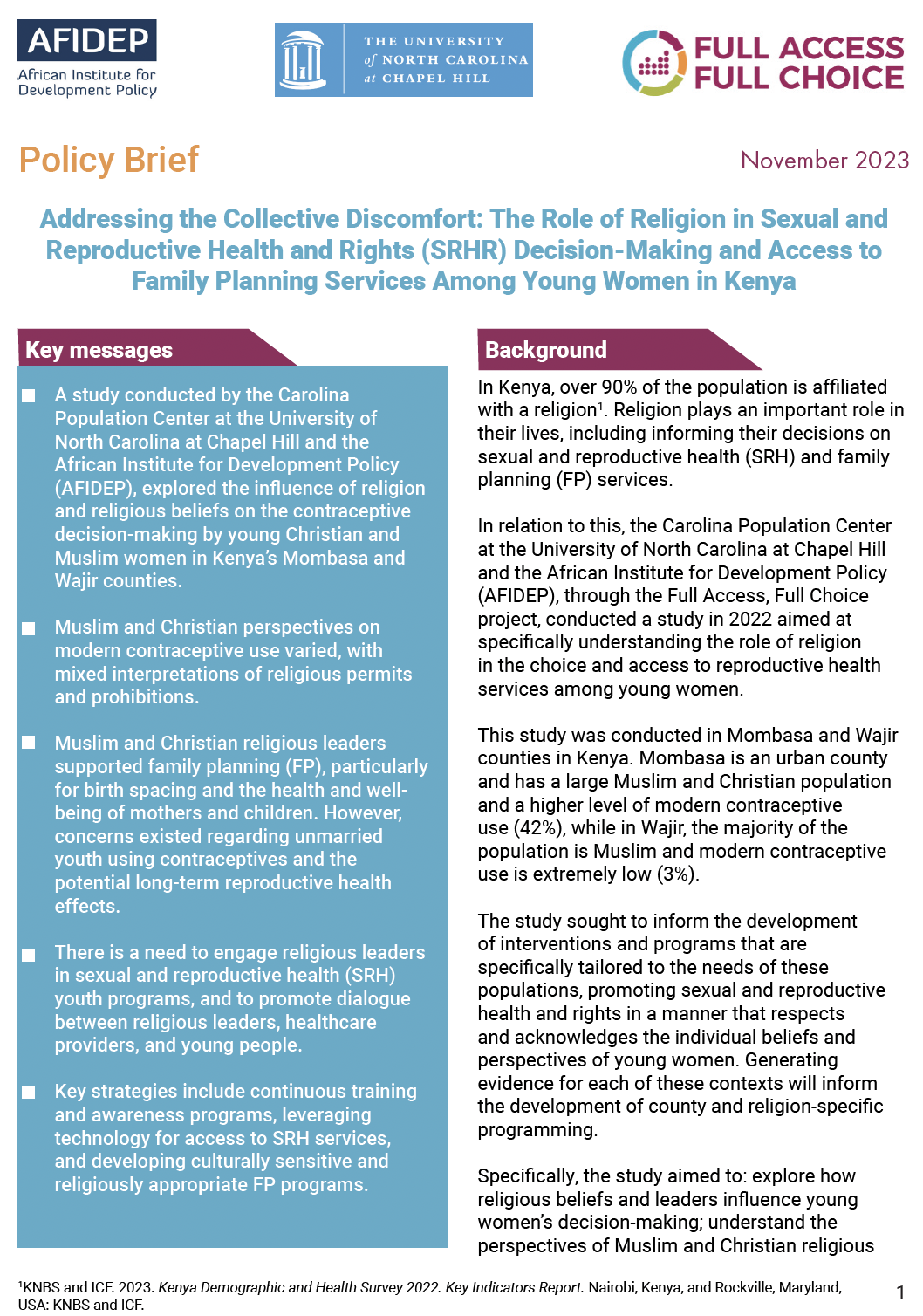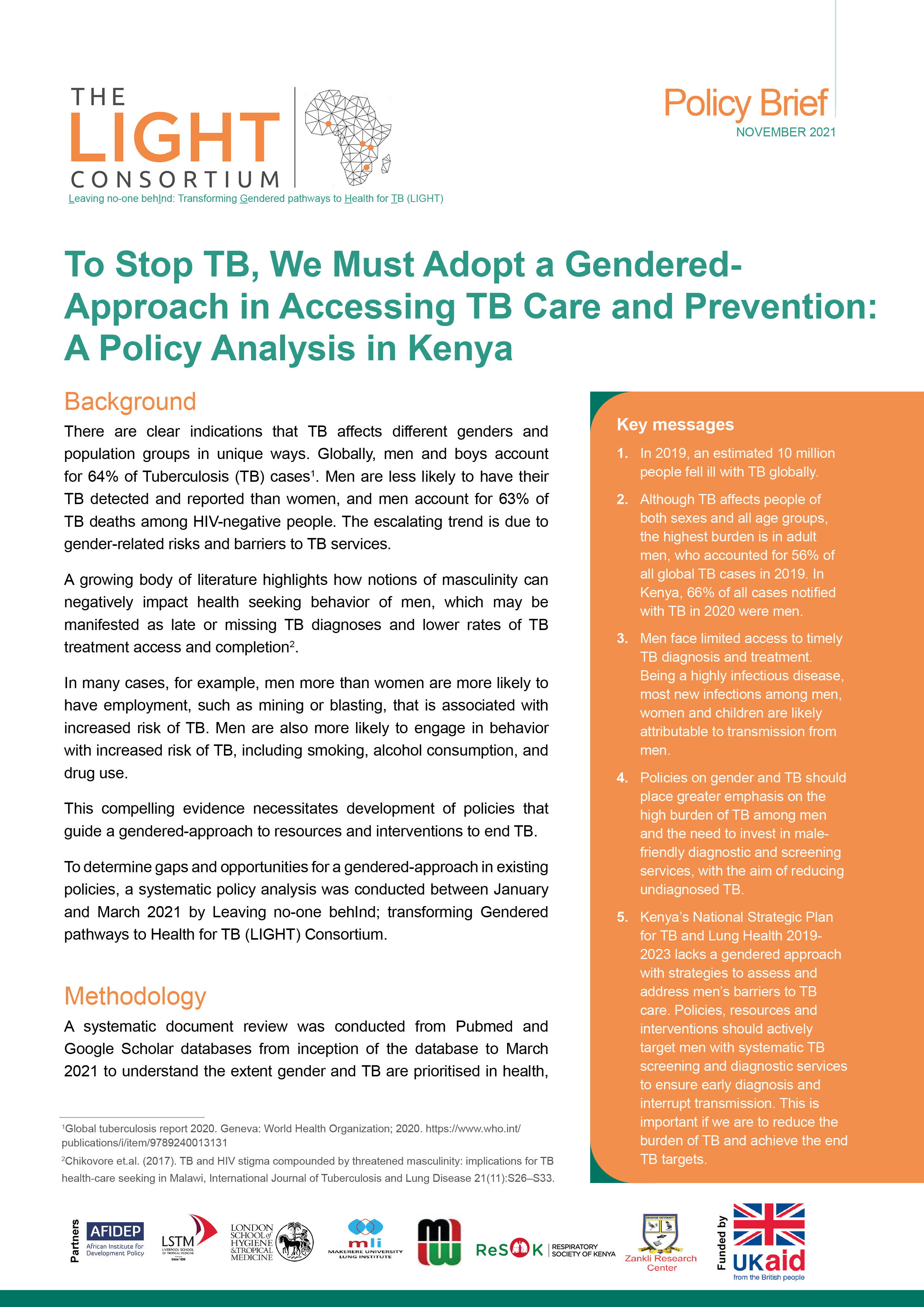Policy Briefs

Cameroon has made commendable progress in improving adolescent sexual and reproductive health (ASRH), driven by targeted investments in adolescent reproductive health services. Over the past two decades, these efforts have contributed to a steady decline in adolescent fertility, reflecting the impact of effective policies and programmes. As part of the Exemplars in ASRHR project, Cameroon was identified as a positive outlier—offering valuable insights into what works to prevent and manage unintended adolescent pregnancies. Download the full policy brief to explore key lessons and recommendations for strengthening adolescent health in Cameroon

Adolescent pregnancies remain a major public health challenge in many low- and middle-income countries (LMICs), often driven by limited access to sexual and reproductive health information and services. The Adolescent Sexual and Reproductive Health and Rights Exemplars (ASHER) project, led by AFIDEP in partnership with Exemplars in Global Health, and researchers from the University of Southampton and University of Portsmouth, explored how six countries;Cameroon, Ghana, India, Malawi, Nepal, and Rwanda have made notable progress in reducing adolescent fertility. This policy brief highlights successful interventions and strategies from these countries, offering practical lessons for governments and stakeholders working to improve adolescent […]

Malawi has made notable progress in reducing adolescent fertility over the past two decades. Education has played a key role in this progress, with girls who stay in school significantly less likely to experience early pregnancy. Recognised as a focus country in the Exemplars in ASHER project, Malawi offers important lessons for improving adolescent sexual and reproductive health. Download the full policy brief to explore the findings and recommendations for advancing adolescent health in Malawi.

This policy brief presents key findings of the Back on Track project’s assessment of Ethiopia’s progress towards achieving health-related SDG 3 targets. It highlights both national and subnational trends in maternal, neonatal, and child health service coverage before and during the COVID-19 pandemic. While national indicators showed resilience, regional disparities in antenatal care, skilled birth attendance, and family planning use remain stark—especially in conflict-affected northern areas. The brief calls for stronger governance coordination, improved data systems, and tailored interventions to sustain progress and close equity gaps. Click here to download

This policy brief presents key findings on Kenya’s progress towards achieving SDG 3 targets for maternal and child health. While improvements in immunisation and skilled birth attendance are noted, persistent challenges remain in maternal mortality and antenatal care coverage. The brief outlines subnational disparities, the limited impact of COVID-19 at the national level, and systemic issues such as health sector underfunding and coordination gaps. Click here to download

This policy brief presents key findings on Nigeria’s status as the furthest off track among the countries studied in achieving MNCAH-related SDGs. It highlights persistent high maternal mortality, low coverage of childhood vaccines and family planning services, and the impact of conflict, inadequate funding, and weak data systems. The brief provides recommendations for reversing this trend through increased domestic investment and targeted interventions in underserved regions. Click here to download

This policy brief presents key findings of the Back on Track project’s regional analysis of maternal, child, and adolescent health (MNCAH) progress across Ethiopia, Kenya, and Nigeria. It explores how the COVID-19 pandemic affected service delivery, widened subnational disparities, and slowed momentum toward achieving SDG 3. The brief offers data-driven recommendations for restoring progress and ensuring equitable access to essential health services. Click here to download

The African Institute for Development Policy (AFIDEP), in partnership Foundation for Innovative New Diagnostics (FIND) and Jomo Kenyatta University of Agriculture and Technology (JKUAT), conducted a policy review and analysis on Kenyan national diagnostics policies and plans to strengthen health systems in the country. Click here to read more.

A study conducted by the Carolina Population Center at the University of North Carolina at Chapel Hill and the African Institute for Development Policy (AFIDEP), explored the influence of religion and religious beliefs on the contraceptive decision-making of adolescent and young Christian and Muslim women in Kenya’s Mombasa and Wajir counties. To read more, CLICK HERE.

Family planning enables women to realize their reproductive rights and reliably control the timing, spacing and number of births. It is recognised as one of the most cost-effective health interventions for achieving many of the world’s development goals. Family planning also empowers women and girls socially and economically, and it boosts the national economy. Investment in family planning, therefore, is an investment in economic development. Download here:

Although Tuberculosis (TB) affects people of both sexes and all age groups, the highest-burden is in adult men, who accounted for 56% of all global TB cases in 2019. In Kenya, 66% of all cases notified with TB in 2020 were men. Policies on gender and TB should place greater emphasis on the high burden of TB among men and the need to invest in male-friendly diagnostic and screening services, with the aim of reducing undiagnosed TB. This compelling evidence necessitates development of policies that guide a gendered approach to resources and interventions to end TB.

A range of social factors can act to either exacerbate the health impacts of the environmental effects of climate change or to help mitigate them with public health interventions. These interventions are well articulated in policies that provide collective interventions affecting transformation in social welfare, social institutions and social relations. Kenya has an advanced legal framework and a suite of policies, strategies, plans in place to address climate change.

